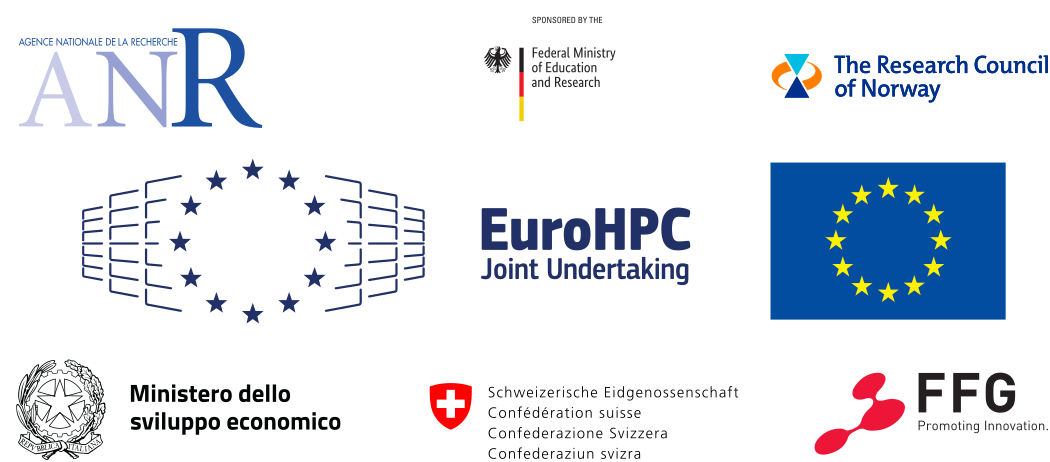Numerical modeling of cardiac electrophysiology at the cellular scale
MICROCARD builds software that can simulate cardiac electrophysiology using whole-heart models with sub-cellular resolution, on exascale supercomputers. From April 2021 to September 2024 MICROCARD was a project funded by EuroHPC call Towards Extreme Scale Technologies and Applications.
Since 1 November 2024 MICROCARD is a Centre of Excellence, also funded by EuroHPC, to consolidate and improve the results of the project. It will be funded for 30 months by the call HORIZON-EUROHPC-JU-2023-COE-03.
Background

Cardiovascular diseases are the most frequent cause of death worldwide and half of these deaths are due to cardiac arrhythmia, disorders of the heart's electrical synchronization system. Computer models are essential to understand the behaviour of this complex system and its diseases. These models are already very sophisticated and widely used, but currently they are not powerful enough to take the heart's (2 billion!) individual cells into account. They must therefore assume that hundreds of cells are doing approximately the same thing. Due to this limitation, current models cannot reproduce the events in aging and structurally diseased hearts, in which reduced electrical coupling leads to large differences in behaviour between neigbouring cells, with possibly fatal consequences.
Challenge
If we want to model the heart cell by cell, we face a mathematical problem that is 10,000 times larger, and also harder to solve. We will need larger supercomputers than those that exist today, and a lot of inventiveness to solve our problem efficiently on these future machines.
Aims
The purpose of the MICROCARD project is to develop software that can solve this problem on future exascale supercomputers. We will develop algorithms that are tailored to the specific mathematical problem, to the size of the computations, and to the particular design of these future computers, which will probably owe most of their compute power to ultra-parallel computing elements such as Graphics Processing Units. We will not content ourselves with a "proof of concept", but will use the code that we develop to solve real-life problems in cardiology. Therefore the project includes computer experts, mathematicians, and biomedical engineers, and collaborates with cardiologists and physiologists.
A more detailed description of our aims is given on our dedicated aims page.
Results

We have studied how to best tackle different aspects of this problem, such as the numerical scheme and algorithms to use. Next, we have developed software, for simulation and for mesh handling, and we have performed tests to see how our methods perform. Most of this work has been presented at scientific meetings or published in peer-reviewed scientific journals. An overview is given on our dedicated results page.
Funding
The project is supported by the EuroHPC Joint Undertaking and its members (including top-up funding by ANR, BMFTR, and Ministero dello sviluppo economico). Funded by the European Union. Views and opinions expressed are however those of the author(s) only and do not necessarily reflect those of the European Union or EuroHPC. Neither the European Union nor EuroHPC can be held responsible for them.
The MICROCARD project (2021-2024)
This project has received funding from the European High-Performance Computing Joint Undertaking EuroHPC (JU) under grant agreement No 955495. The JU receives support from the European Union’s Horizon 2020 research and innovation programme and France, Italy, Germany, Austria, Norway, Switzerland.
The project is supported by the EuroHPC Joint Undertaking and its members.
EuroHPC projects are for one half funded by the EuroHPC Joint Undertaking, and for the other half by the national funding agencies of the project partners.

Contact
You can follow us on LinkedIn
as @project MICROCARD
and on Twitter as @P_Microcard.
We're reachable by mail at mark dot potse at u-bordeaux.fr.com without the dotcom of course. We don't like to receive commercial offers.